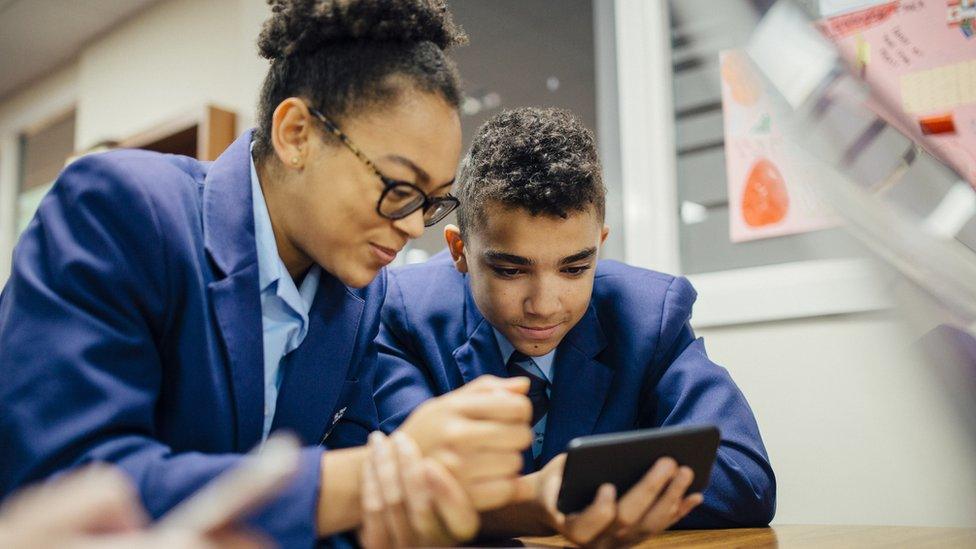Science education charity moves into its new home
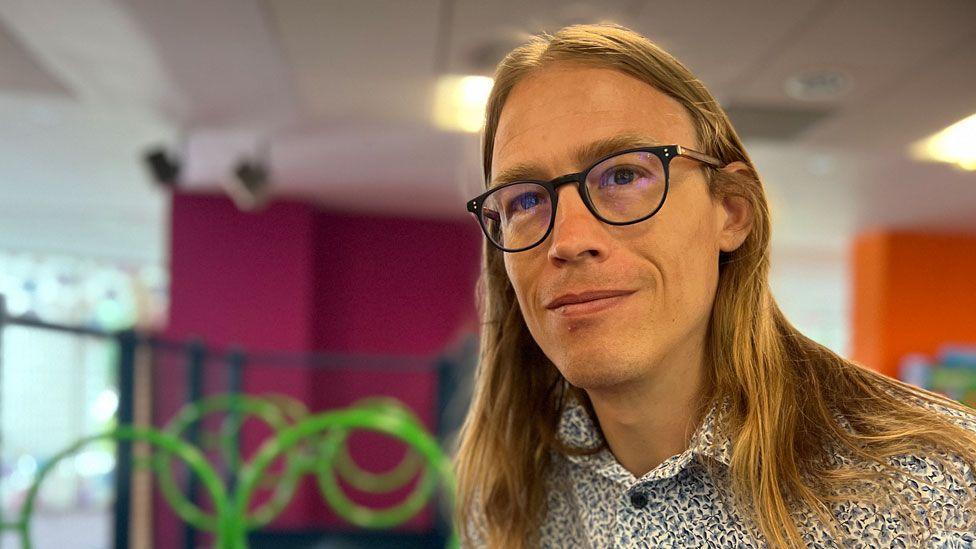
"Visiting children can experiment, fail and rise to their own challenges and feel a huge sense of achievement," said John Bull
- Published
A centre designed to encourage children "to dream of a future" as scientists has moved to a permanent and accessible base.
Cambridge Science Centre has a new home on the Cambridge Science Park and offers its young visitors 20 interactive experiments and installations.
The charity, which is 10 years old, hopes this will inspire children and give them a lifelong love and fascination with Stem (science, engineering, technology and mathematics).
CEO John Bull said: "Too many children are deciding that science isn't for them and we want to show them that it's fun, joyful."
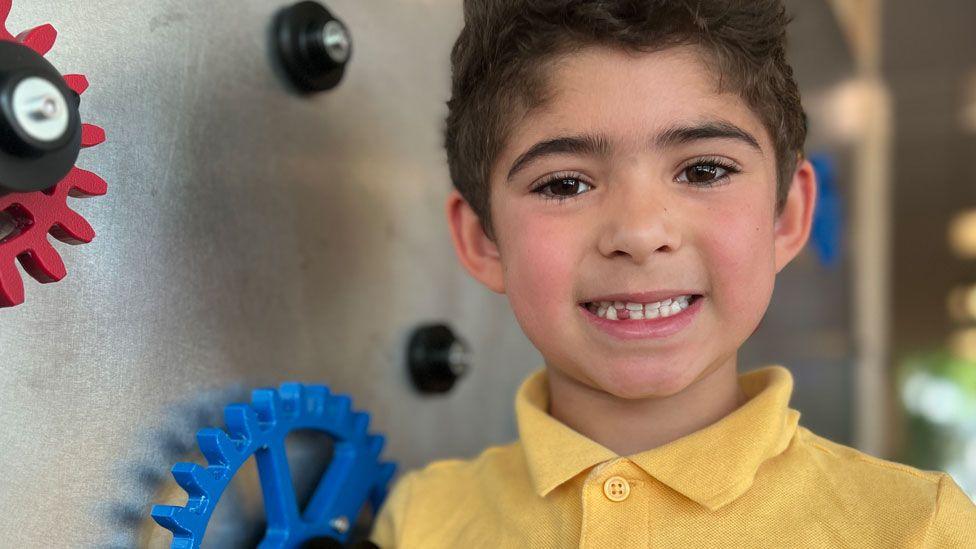
Cosmo said he enjoyed playing with the gears, which can be seen behind him
"They can test, experiment, fail and rise to their own challenges and feel a huge sense of achievement - and that is so important for society as a whole," he added.
Six-year-old Cosmo, who was visiting with his school, agreed it was "pretty fun" to "play with all my friends here and with all the new stuff".
He was able to explore hands-on exhibits, covering diverse Stem subjects from AI to zoology.
Science communicator Mario Satchwell said: "It's amazing just to explore science for children because every single time you do it and every single child you meet, they learn something new and that moment never gets old."
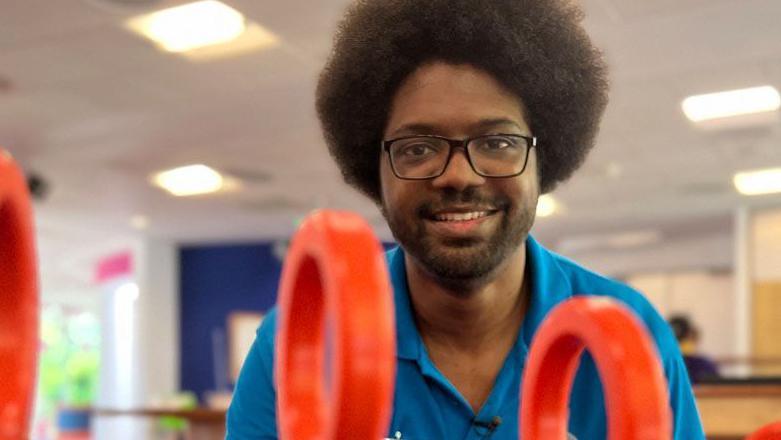
Mario Satchwell said visiting children learned how much fun science could be
The centre was initially based on Jesus Lane in the middle of the city and has since put on a series of pop-up events.
It is now based in the Science Park's Trinity Centre, surrounded by 70-cutting edge Stem companies.
Mr Bull said having a permanent base in north Cambridge was "absolutely crucial - especially for those young children who face more barriers".
"We need to create experiences like this that show they too can be great scientists... to light the hearts and minds of young children, to inspire them about science and get them to dream of a future [where they] continue to study and work in it," he said.
Follow Cambridgeshire news on Facebook, external, Instagram, external and X, external. Got a story? Email eastofenglandnews@bbc.co.uk, external or WhatsApp us on 0800 169 1830
Related topics
- Published18 April 2024
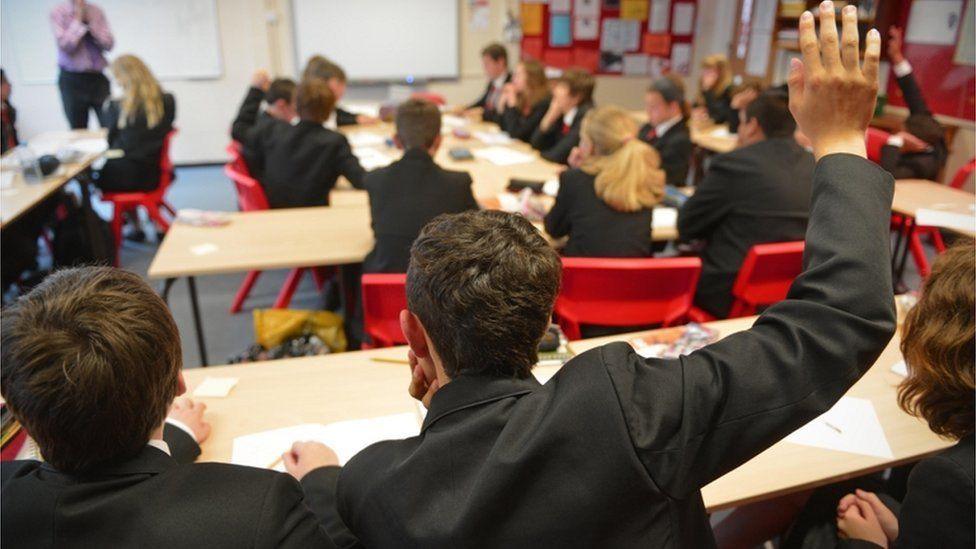
- Published15 January 2024
